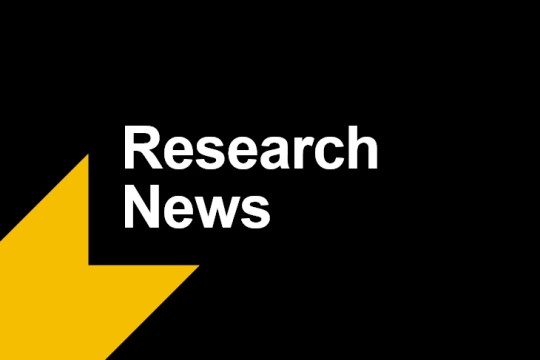Rahman, F., B. Vasu, and A. Savakis. "Resilience and Self Healing of Deep Convolutional Object Detectors." Proceedings of the International Conf. on Image Processing (ICIP). Ed. IEEE. Athens, Greece: IEEE, 2018. Web.
Minnehan, B. and A. Taufique. "Fully Convolutional Adaptive Tracker with Real Time Performance." Proceedings of the Defense and Commercial Sensing, Geospatial Informatics Conference. Ed. SPIE. Baltimore, MD: SPIE, 2019. Web.
Taufique, A. M. N. and A. Savakis. "Automatic Quantification of Facial Asymmetry Using Facial Landmarks." Proceedings of the IEEE Western New York Signal and Image Processing Workshop. Ed. IEEE. Rochester, NY: IEEE, 2019. Web.
Minnehan, B. and A. Savakis. "Cascaded Projection: End-To-End Network Compression and Acceleration." Proceedings of the Computer Vision and Pattern Recognition (CVPR). Ed. IEEE. Long Beach, CA: IEEE, 2019. Web.
Huang, K. and A. Savakis. "Semantic Pose Machines." Proceedings of the Electronic Imaging. Ed. IS&T. San Francisco, CA: IS&T, 2018. Web.
Savakis, A. and A. Shringarpure. "Semantic Background Estimation in Video Sequences." Proceedings of the International Conf. on Signal Processing and Integrated Networks (SPIN). Ed. IEEE. Noida, India: IEEE, 2018. Web.
Minnehan, B., et al. "Benchmarking deep learning trackers on aerial videos." Proceedings of the Defense and Security Symposium Pattern Recognition and Tracking. Ed. SPIE. Orlando, FL: SPIE, 2018. Web.
Minnehan, B. and A. Savakis. "Learning Robust Feature Representations in Deep Networks for Image Classification." Proceedings of the IEEE 25th International Conference on Mixed Design of Integrated Circuits and Systems (MIXDES). Ed. IEEE. Gdynia, Poland: IEEE, 2018. Web.
Shagan, S., et al. "Multimodal Reconstruction Using Vector Representation." Proceedings of the International Conf. on Image Processing (ICIP). Ed. IEEE. Athens, Greece: IEEE, 2018. Web.
Shagan, S., et al. "Semantically Invariant Text-to-Image Generation." Proceedings of the International Conf. on Image Processing (ICIP). Ed. IEEE. Athens, Greece: IEEE, 2018. Web.
Vasu, B., F. Rahman, and A. Savakis. "Aerial-CAM: Salient Structures and Textures in Network Class Activation Maps of Aerial Imagery." Proceedings of the 13th Image, Video, and Multidimensional Signal Processing Workshop (IVMSP). Ed. IEEE. Zagori, Greece: IEEE, 2018. Web.
Blakeslee, B., R. Ptucha, and A. Savakis. "Faster-ArtCNN: An Extremely Fast Style Transfer Network." Proceedings of the IEEE Western New York Signal and Image Processing Workshop. Ed. IEEE. Rochester, NY: IEEE, 2018. Web.
Hssayeni, M., et al. "Distracted driver detection: Deep learning vs handcrafted features." Proceedings of the Electronic Imaging. Ed. IS&T. San Francisco, CA: IS&T, 2017. Web.
Muller, P. and A. Savakis. "Flowdometry: An Optical Flow and Deep Learning Based Approach to Visual Odometry." Proceedings of the Winter Applications on Computer Vision (WACV). Ed. IEEE. Santa Rosa, CA: IEEE, 2017. Web.
Chachlakis, D., et al. "Visual Tracking with L1 Grassmann Manifold Modeling." Proceedings of the Defense and Commercial Sensing Compressive Sensing VI: From Diverse Modalities to Big Data Analytics;. Ed. SPIE. Anaheim, CA: SPIE, 2017. Web.
Chachlakis, D., et al. "Visual Tracking with L1 Grassmann Manifold Modeling." Proceedings of the Defense and Commercial Sensing Compressive Sensing VI: From Diverse Modalities to Big Data Analytics;. Ed. SPIE. Anaheim, CA: SPIE, 2017. Web.
Minnehan, B. and A. Savakis. "Manifold Guided Label Transfer for Deep Domain Adaptation." Proceedings of the Computer Vision and Pattern Recognition Workshops. Ed. IEEE. Honolulu, Hawaii: IEEE, 2017. Web.
Medel, J., A. Savakis, and B. Ghoraani. "A Novel Time Frequency Feature Extraction Algorithm Based on Dictionary Learning." Proceedings of the IEEE Int. Conf. Acoustics Speech Signal Proc., (ICASSP). Ed. IEEE. Shanghai, China: IEEE, 2016. Print.
Kumar, S., B. Ghoraani, and A. Savakis. "Joint and Discriminative Dictionary Learning for Facial Expression Recognition." Proceedings of the Electronic Imaging. Ed. IS&T. San Francisco, CA: IS&T, 2016. Web.
Minnehan, B. and A. Savakis. "Efficient pedestrian detection from aerial vehicles with object proposals and deep convolutional neural networks." Proceedings of the Defense and Security Automatic Target Recognition. Ed. SPIE. Baltimore, MD: SPIE, 2016. Print.
Chianucci, D. and A. Savakis. "Unsupervised Change Detection using Spatial Transformer Networks." Proceedings of the IEEE Western New York Signal and Image Processing Workshop. Ed. IEEE. Rochester, NY: IEEE, 2016. Web.
Kumar, S. and A. Savakis. "Robust Domain Adaptation on the L1-Grassmannian." Proceedings of the Computer Vision and Pattern Recognition Workshops. Ed. IEEE. Las Vegas, NV: IEEE, 2016. Web.
Savakis, Andreas, Mohammad Faiz Quraishi, and Breton Minnehan. "Mobile Object Tracking Using Binary Descriptors." Proceedings of the SPIE 9408, Imaging and Multimedia Analytics in a Web and Mobile World, Electronic Imaging 2015. Ed. Qian Lin, Jan P. Allebach, and Zhigang Fan. San Francisco, California: SPIE, 2015. Print.
Minnehan, Breton and Andreas Savakis. "Aerial Video Mosaicking Using Binary Feature Tracking." Proceedings of the SPIE 9460, Airborne Intelligence, Surveillance, Reconnaissance (ISR) Systems and Applications XII,. Ed. Daniel J. Henry et al. Baltimore, MD: SPIE, 2015. Print.
Johnson, Matthew and Andreas Savakis. "L1 Grassmann Manifolds for Robust Face Recognition." Proceedings of the 2015 IEEE International Conference on Image Processing (ICIP). Ed. Jean-Luc Dugelay and André Morin. Quebec, Canada: IEEE, 2015. Print.
Peters, Ethan and Andreas Savakis. "SVM with OpenCL: High Performance Implementation of Support Vector Machines on Heterogeneous Systems." Proceedings of the 2015 IEEE International Conference on Image Processing (ICIP). Ed. Jean-Luc Dugelay and André Morin. Quebec, Canada: IEEE, 2015. Print.
Peres, Michael and Andreas Savakis. "Crowdpainting with Light: Participatory Imaging at the Big Shot." Proceedings of the Extreme Imaging Workshop at the International Conference on Computer Vision (ICCVW). Ed. Ruzena Bajcsy, Greg Hager, and Yi Ma. Santiago, Chile: IEEE, 2015. Web.
Moirogiorgou, Konstantia, et al. "Color Characteristics for the Evaluation of Suspended Sediments." Proceedings of the 2015 IEEE International Conference on Imaging Systems and Techniques (IST). Ed. George Giakos. Macau, China: IEEE, 2015. Print.
Savakis, A., R. Sharma, and M. Kumar. "Efficient Eye Detection using HOG-PCA Descriptor." Proceedings of the IS&T/SPIE Electronic Imaging, Imaging and Multimedia Analytics in a Web and Mobile World. Ed. Q. Lin, J. P. Allebach, and Z. Fan. San Francisco, CA: SPIE, 2014. Print.
Johnson, M. and A. Savakis. "Fast L1-Eigenfaces for Robust Face Recognition." Proceedings of the IEEE Western NY Image and Signal Processing Workshop. Ed. IEEE. Rochester, NY: IEEE, 2014. Print.
Bacharidis, K., et al. "River Flow Estimation using Video Data." Proceedings of the IEEE International Conference on Imaging Systems and Techniques. Ed. IEEE. Santorini, Greece: n.p., 2014. Print.
Moirogiorgou, K., et al. "Statistical Estimation of Fluid Flow." Proceedings of the International Symposium Visual Computing (ISVC). Ed. G. Bebis. Las Vegas, NV: n.p., 2014. Print.
Minnehan, B., H. Spang, and A. Savakis. "Robust and Efficient Tracker using Dictionary of Binary Descriptors and Locality Constraints." Proceedings of the International Symposium Visual Computing (ISVC). Ed. G. Bebis. Las Vegas, Nevada: n.p., 2014. Print.
Savakis, A., R. Rudra, and R. W. Ptucha. "Gesture Control Using Active Difference Signatures and Sparse Learning." Proceedings of the International Conference Pattern Recognition (ICPR). Ed. IAPR. Stockholm, Sweden: n.p., 2014. Print.
Ptucha, R., S. Azary, and A. Savakis. "Keypoint Matching and Image Registration using Sparse Representations." Proceedings of the IEEE International Conference Image Processing (ICIP). Ed. B. Lovell and D. Suter. Melbourne, Australia: IEEE, 2013. Print.
Bellmore, C., R. Ptucha, and A. Savakis. "Fusing of Depth and Color for an Improved Active Shape Model." Proceedings of the IEEE International Conference Image Processing (ICIP). Ed. B. Lovell and D. Suter. Melbourne, Australia: IEEE, 2013. Print.
Ptucha, R. and A. Savakis. "Joint Optimization of Manifold Learning and Sparse Representations." Proceedings of the IEEE Int. Conf. Automatic Face and Gesture Recognition (FG 2013). Ed. R. Chellappa, X. Chen, and Q. Ji. Shanghai, China: IEEE, 2013. Print.
Ptucha, R. and A. Savakis. "LGE-KSVD: Flexible Dictionary Learning for Optimized Sparse Representation Classification." Proceedings of the IEEE Conf. on Computer Vision and Pattern Recognition (CVPR) Workshop on Analysis and Modeling of Faces and Gestures. Ed. G. Medioni and R. Zabih. Portland, OR: IEEE, 2013. Print.
Azary, S. and A. Savakis. "Grassmannian Sparse Representations and Motion Depth Surfaces for 3D Action Recognition." Proceedings of the IEEE Conf. on Computer Vision and Pattern Recognition (CVPR) Workshop on Human Activity Understanding from 3D Data. Ed. G. Medioni and R. Zabih. Portland, OR: IEEE, 2013. Print.
Azary, S. and A. Savakis. "Grassmannian Spectral Regression for Action Recognition." Proceedings of the 9th International Symposium on Visual Computing (ISVC), in Lecture Notes in Computer Science. Ed. G. Bebis. Rethymnon, Greece: Springer, 2013. Print.
Knack, T. and A. Savakis. "Real-time Content-aware Video Retargeting for Tunnel Vision Assistance." Proceedings of the IS&T/SPIE Electronic Imaging Conf. Multimedia on Mobile Devices. Ed. G. Sharma and R. Goma. San Francisco, CA: IS&T/SPIE, 2013. Print.
Moirogiorgou, K., et al. "High Frequency Monitoring System for Integrated Water Resources Management of Rivers." Proceedings of the EWaS-MED International Conference. Ed. A. Zouboulis. Thessaloniki, Greece: EWRA, 2013. Print.
Ptucha, R. and A. Savakis. "Fusion of Static and Temporal Predictors for Unconstrained Facial Expression Recognition." Proceedings of the IEEE International Conference Image Processing (ICIP). Ed. E. Saber. Orlando, FL: IEEE, 2012. Print.
Azary, S. and A. Savakis. "A Spatiotemporal Descriptor based on Radial Distances and 3D Joint Tracking for Action Classification." Proceedings of the IEEE International Conference Image Processing (ICIP). Ed. E. Saber. Orlando, FL: IEEE, 2012. Print.
Savakis, A., et al. "Low Vision Assistance using Face Detection and Tracking on Android Smartphones." Proceedings of the IEEE Midwest Symposium on Circuits and Systems. Ed. N. Rafla. Boise, ID: IEEE, 2012. Print.
Ptucha, R. and A. Savakis. "How Connections Matter: Factors Affecting Student Performance in STEM Disciplines." Proceedings of the IEEE Integrated STEM Education Conference. Ed. S. Donohue. Princeton, NJ: IEEE, 2012. Print.
Azary, S. and A. Savakis. "Multiview Action Classification Using Sparse Representations on Motion History Images." Proceedings of the IEEE Western New York Image Processing Workshop. Ed. D. Joshi. Rochester, NY: IEEE, 2012. Print.
Azary, S. and A. Savakis. "3D Action Classification Using Sparse Spatio-Temporal Feature Representations." Proceedings of the 8th International Symposium on Visual Computing (ISVC) in Lecture Notes in Computer Science. Ed. G. Bebis. Rethymnon, Greece: Springer, 2012. Print.
Ptucha, R. and A. Savakis. "Towards the Usage of Temporal Features for Facial Expression Classification." Proceedings of the 8th International Symposium on Visual Computing (ISVC), in Lecture Notes in Computer Science. Ed. G. Bebis. Rethymnon, Greece: Springer, 2012. Print.
Bellmore, Colin, Raymond Ptucha, and Andreas Savakis. "Interactive Display Using Depth and RGB Sensors for Face and Gesture Control." Proceedings of the IEEE Western New York Image Processing Workshop. Ed. IEEE Rochester Section. Rochester, NY: IEEE, 2011. Web.
Ptucha, Raymond and Andreas Savakis. "Manifold Based Sparse Representation for Robust Expression Recognition without Neutral Subtraction." Proceedings of the Int. Conf Computer Vision IEEE International Workshop on Benchmarking Facial Image Analysis Technologies. Ed. H.K. Ekenel, G. Hua, S. Shan. Barcelona, Spain: IEEE, 2011. Print.
Ptucha, Raymond, Greg Tsagkatakis, and Andreas Savakis. "Manifold Learning for Simultaneous Pose and Facial Expression Recognition." Proceedings of the 2011 18th IEEE International Conference on Imaging Processing. Ed. Benoit Macq, Peter Schelkens. Brussels, Belgium: IEEE, 2011. Print.
Keane, Thomas, et al. "Unsupervised Automated Panorama Creation for Realistic Surveillance Scenes Through Weighted Mutual Information Registration." Proceedings of the SPIE Electronic Imaging. Ed. Jaakko T. Astola and Karen O. Egiazarian. San Fransisco, CA: SPIE, 2011. Print.












